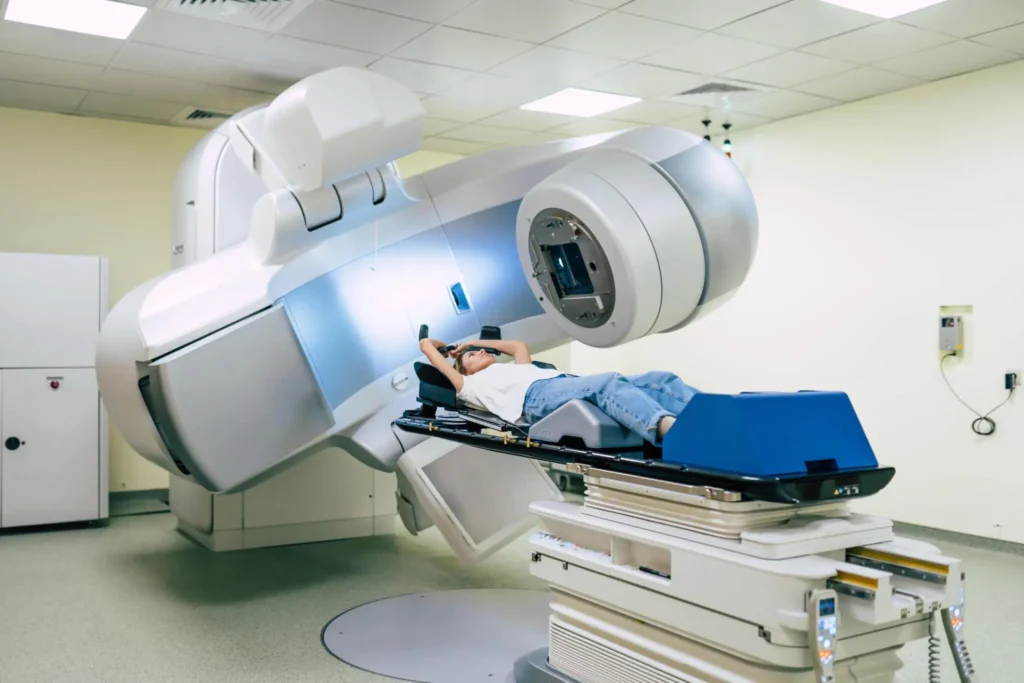Last Updated on 3 months ago by Nicky Johnson
Cancer is a formidable foe that affects millions of lives worldwide. While treatment options have evolved over the years, radiation therapy remains a cornerstone in the fight against this relentless disease.
This article explores the crucial role of radiation therapy in cancer treatment, shedding light on its mechanisms, benefits, and the ways it complements other treatment modalities.

Understanding Radiation Therapy
Blog Contents
Radiation therapy, or radiotherapy, is a medical technique that uses high-energy radiation to target and destroy cancer cells. It damages the DNA within these cells, stopping them from multiplying and eventually leading to their demise.
This therapy can be delivered using various methods, such as external beam radiation, internal radiation (brachytherapy), or systemic radiation. To know more about this therapy, visit websites like Targeting Cancer for additional information and resources to help you better understand its applications and benefits.
Precise Targeting: A Key Advantage
One of the remarkable aspects of radiation therapy is its ability to target cancerous tissue while sparing healthy surrounding cells precisely.
Modern technologies, including image-guided radiation therapy (IGRT) and intensity-modulated radiation therapy (IMRT), enable clinicians to accurately map the tumor’s location.
This precision minimizes collateral damage, reducing side effects and enhancing the patient’s overall life grade during treatment.
Combating Different Types of Cancer
Radiation therapy plays a versatile role in the fight against cancer. It can be used as a direct treatment or with other therapies, such as surgery, chemotherapy, and immunotherapy. Depending on the type, location, and stage of cancer, radiation therapy can be tailored to best suit the patient’s needs. It is effective against a wide range of cancers, including lung, breast, prostate, cervical, and brain cancer, among others.
Adjuvant and Neoadjuvant Therapy
In some cases, radiation therapy serves as adjuvant therapy, meaning it follows the primary treatment to eradicate any remaining cancer cells and lower the risk of recurrence. Conversely, neoadjuvant therapy involves using radiation therapy before surgery to shrink tumors, making them easier to remove. These approaches underscore the flexibility of radiation therapy in cancer management.
Pain Relief and Symptom Management
Apart from its curative potential, radiation therapy also plays a pivotal role in palliative care. For patients with advanced cancer or those for whom a cure is not possible, radiation therapy can provide comfort from pain and other distressing symptoms. By targeting tumors or metastatic lesions causing discomfort, radiation therapy helps improve the patient’s overall quality of life.
Minimising Side Effects
While radiation therapy can cause side effects, they are usually manageable and temporary. Common side effects may include fatigue, skin changes, and localized discomfort. Advances in radiation therapy techniques have substantially reduced these side effects. Additionally, patients are closely monitored during treatment, allowing healthcare providers to make necessary adjustments to minimize discomfort.
Personalized Treatment Plans
Every cancer patient is unique, and their treatment should reflect that individuality. Radiation oncologists work closely with a multidisciplinary team to create personalized treatment plans. Factors like the patient’s overall health, age, and specific cancer type are considered when determining the most effective radiation therapy approach. This personalized approach enhances the chances of successful treatment outcomes.
Conclusion
In the battle against cancer, radiation therapy emerges as a powerful and versatile weapon. Its precision, adaptability, and ability to complement other treatments make it an indispensable tool for oncologists.
Whether employed as the primary treatment, adjuvant therapy, or for palliative care, radiation therapy offers hope and relief to countless individuals and their families affected by this devastating disease.
As technology continues to advance, the role of radiation therapy in cancer treatment will only become more significant, bringing us closer to a future where cancer is not just treatable but conquerable.







